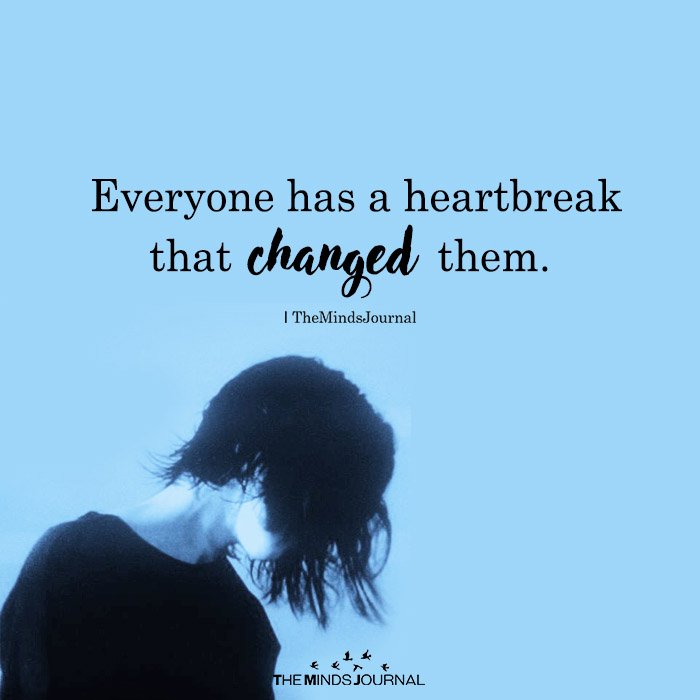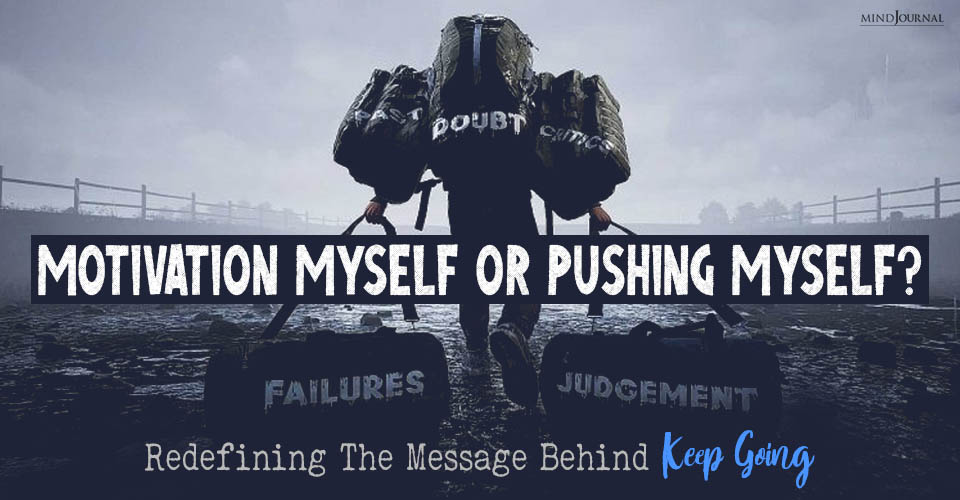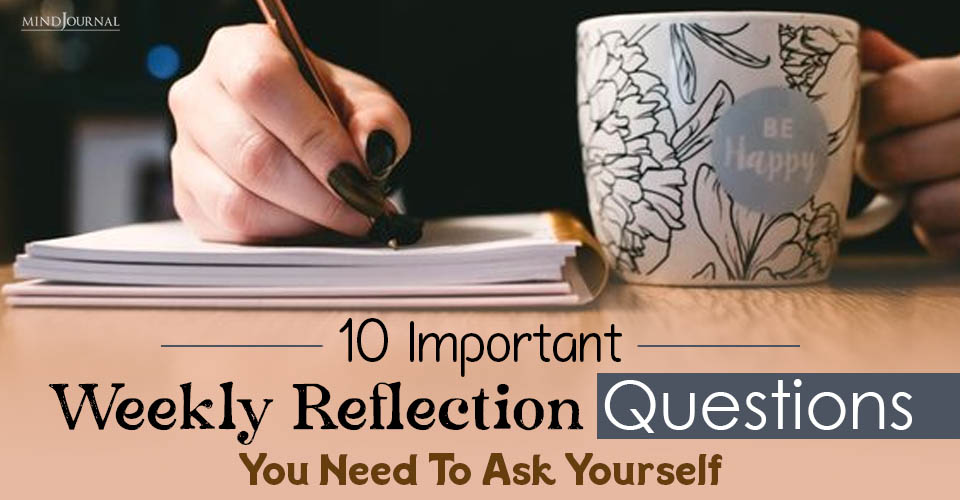“Hearts can break. Yes, hearts can break. It would be better if we died when they did, but we don’t.” – Stephen King
Every individual is unique so are their relationships. Some of the relationships are personal, some professional, and some define social conventions like marriage. No matter what the type is, it always involves the intimate interactions of two individuals with their unique set of values and ideas which contributes to the growth of the ones involved. Some of these relations work out beautifully, some of them might not.
Heartbreaks can occur due to innumerable reasons. Be it separation, rejection, or failure, apparently, heartbreaks can be psychologically paralyzing. Even from the evolutionary point of view, breakup which essentially characterizes social rejection is a threat to our survival. We want to avoid it at all costs. Regardless of us trying to bypass it; it’s an inevitable part of our lives. But the silver lining to the cloud is that they are blessings in disguise.
Irrespective of the cause of the separation, it is often followed by intense emotional pain, disillusionment, and grief. Getting over heartbreak often seems to be an insurmountable task. Thanks to our neurons. In 2010 (1), a theory-guided by FMRI study shows that when a person experiences heartbreak, the human brain indicated activity in a similar region of the brain as does physical pain. Therefore a romantic breakup hurts equally as bad as physical pain. It literally hurts.
But as difficult and painful as it seems, heartbreaks can work as an incredible catalysts to our personal growth.
Once you are in the process of getting over it, you learn to be resilient and emerge out mentally stronger than ever thus rendering self-evaluation and self-enlightenment.
Here are 7 ways heartbreaks make you wiser:
1) You learn to set your standards.
Sometimes when you are in love, you tend to overextend yourself to make your partner happy even at the expense of your own comfort. You tend to introject and consider yourself to be an extension of the other person.
Separation is dreaded as you believe you will lose an integral part of yourself in the process. Eventually you end up doing everything possible to please your partner and make things work out with them. Even when you have done everything in your power to make the relationship work, there is no guarantee that the relationship will sustain.
Heartbreaks may make you excessively sad initially but gradually you learn to bounce back. When you look back in retrospection you realize what your deal breakers are.
An increased self-awareness makes us better equipped to set standards for how we want to be treated and learn to create our boundaries in our subsequent interpersonal relationships.
Related: 5 Ways A Heartbreak Helps Us Create A Stronger Self
2) It helps you review your intrinsic needs.
When we are in a relationship, we explore our needs & wants better. We realize what our priorities are, what our basic needs, wants are, and how we can communicate them in a healthy way to our partners.
Often our own insecurities and complexes get reflected in the manner we interact with our partners. Heartbreak helps you gain insight into your own emotional reactivity and defensive reaction patterns which might have led to the separation in the first place. It teaches you what really makes you tick & what your turn-offs are. This newfound self-clarity helps you to approach your future dates with immense assertiveness.
3) You learn to create boundaries.
Heartbreak teaches you that one cannot fill from an empty cup. You learn to prioritize your needs before you become a savior for others. A relationship matures beyond years when you let it breathe and bloom at its own pace. Oftentimes due to a vague sense of our own boundaries, we suffocate the relationship.
It teaches you to focus on individual independence and self-reliance. As you spend more time with yourself, trying to overcome the pain inflicted by heartbreak, you realize your worth and value which fosters self-acceptance. Most importantly you learn to love and rediscover the beauty within yourself.
The biggest lesson that you learn from heartbreak is that healthy relationships are built on healthy boundaries and poor boundaries give the other person the license to inadvertently manipulate you and take you for granted. You also learn to maintain individual identities and preferences in future relationships to come.
Khalil Gibran in his book, ‘The prophet’ had expressed it aptly “Let there be spaces in your togetherness, and let the winds of the heavens dance between you.”

4) You learn that it’s not the end of the world.
Many people tend to engage in self-doubt followed by a breakup. “Why me?”, “Was I not worth it?”, “I will never be able to get over this breakup.” “I deserve this.” are a few things you tell yourself that reflects how it has affected your self-esteem.
A broken heart gives you the perfect opportunity to reassess your life, your strengths and weaknesses, your dreams, your goals, your priorities and give you the strength to start afresh. While venturing for productive catharsis you often explore your creative sides. Spending time with oneself, exploring your potentials, starting new projects, cultivating new ideas, ultimately lead you to become the highest versions of yourself.
What is a better motivation than a broken heart?
You also learn that your relationship is a part of your life and even though heartbreaks are pretty nasty, they don’t mean the end of the world for you. We get lost in love. And heartbreaks help us find ourselves.
Related: How You Know You Have Recovered From Heartbreak
5) It teaches you empathy.
Once you start working on healing yourself from the pain of a breakup, you try to rationally conceptualize what might have gone wrong in the relationship. This helps you to learn to consider the other person’s perspective instead of having an unhealthy focus on the self. The reason pain and suffering make one wiser are because they teach us to be generous with others.
Once you have faced a loss, crisis, or a tragic incident, you know how it feels and you can empathize with someone else going through a similar situation and inspire them to believe in themselves in times of hardship.
This makes you wiser, humble, compassionate and brave.
6) You learn that it is better to be alone than being with the wrong person.
When two people are interconnected with one another, their lives are bound in several intimate ways. They might have shared the same physical space and have created lasting memories together that make it difficult for one to instantly accept the other person’s absence. This is when we feel that the loneliness will engulf us and hold us back from moving on.
Heartbreaks give you a perfect opportunity to get to know yourself better. Solitude can be comforting too, as it helps clear the clutter in your mind and give way for productive ideas to flourish. In the process, you learn to become your own best friend and start enjoying your own company which can be very rejuvenating for the self.
As Osho puts it “There is a difference between loneliness and aloneness. Loneliness means that you miss the presence of the other. To be alone means that being by oneself is enough. Loneliness is painful but there is bliss in being alone.”
7) You learn that your happiness does not depend on other people.
Initially, heartbreaks can feel like the end of the world because you are so habituated with the person’s presence in your life. Accepting the fact that the person, who you trusted, can break your heart is difficult. You feel helpless and scared to face the world alone.
If we define our contentment with what other people do for us or how other people treat us, we are allowing them control over us. How we attach meaning to the actions of others also makes a lot of difference. Some actions that do not count as hurtful to your partner may cause pain to you.
Related: Your Body During a Breakup: 10 Scientific Effects Heartbreak Has On The Body
Happiness doesn’t reside outside oneself; it is within oneself, through acceptance and rational understanding of the situation, that peace can be attained. Happiness is subjective and is not dependent on the actions or words of others, but on how you choose to perceive a situation and respond to it. Only you are in control of your actions.
“Happiness can be found, even in the darkest of times, if one only remembers to turn on the light.” – J.K.Rowling
Reference: Brain regions associated with psychological pain: Implications for a neural network and its relationship to physical pain












Leave a Reply